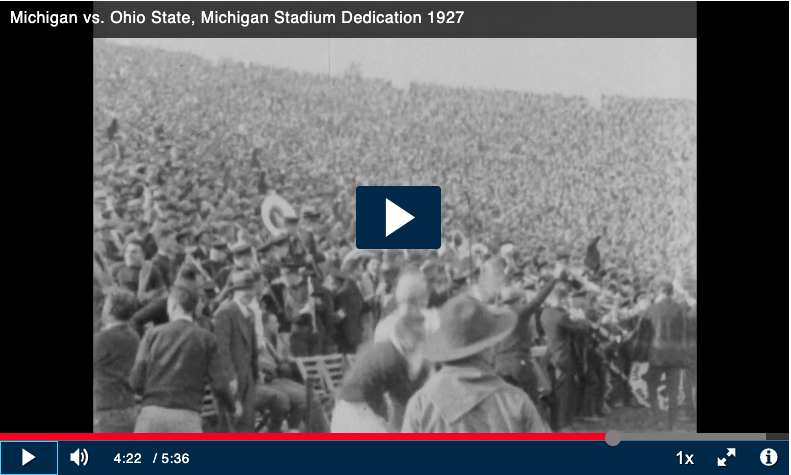News Stories
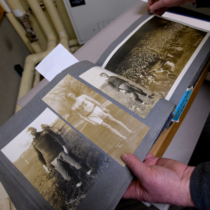
Athletics History is Michigan History
Preserving sports history for past, present, and future Wolverines is a big part of the Bentley Historical Library’s work. More than 590 football films have recently been digitized and made available online.
by Lara Zielin
Photos by Lon Horwedel
The Michigan Stadium “Dedication Game” was played in 1927 between U-M and Ohio State.
U-M won handily that day, 21-0.
And now, thanks to historical U-M football films that have been digitized and made available to the public by the Bentley Historical Library, you can actually watch parts of this game.
You can see the excitement of the crowd as they cheer, clap, and toss papers into the air in celebration.
You can watch the “Yell Master” do several flips on the field after leading chants with a large megaphone.
It’s a silent film, but in one section you can see the cheerleaders making motions with their arms like a chugging train. They were all doing the “locomotive” cheer.
This film is one of more than 590 football films that have been digitized thanks to a generous donation by Michael and Frances Peikert to the Bentley Historical Library. Today, the digitized football films complement the Bentley’s archived photos of players and coaches, aerial views of the stadium, student scrapbooks packed with memorabilia, sheet music from old fight songs, and so much more.
U-M’s athletic past is a critical part of the university’s history. “What happened on the field was often a reflection of what was happening more broadly on campus, even in the culture,” said University of Michigan Professor Greg Dooley. “This goes for football but for other sports, and it’s why preserving the university’s athletics history is paramount to preserving U-M history.”
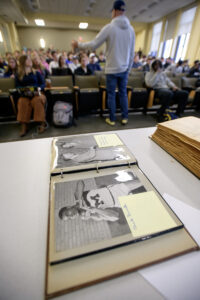
Bentley archivists brought scrapbooks with photos, tickets, and more to share with a History of College Athletics class with Professor Greg Dooley.
Dooley shared U-M history with students last year in his class “History of College Athletics,” which examined college athletics from the 1800s to the present day including origins, trends, opportunities, and challenges.
In one class project, Dooley asked students to document a moment related to last year’s memorable 15-0 football season, with the Wolverines winning both the Rose Bowl and the College Football National Championship.
To help students think about how football memories have been documented throughout Michigan’s past, Dooley invited Bentley archivists to his class. The archivists brought scrapbooks, photos, and other sports-related primary sources directly to the students.
“Think about what is the same [as your experience], and what is different,” said Archivist for Academic Programs Meghan Courtney as she showed students photos, tickets, and game-day programs. “Athletics were a part of past student experiences, too.”
For another project, Dooley asked his students to research, study, and reflect on a historic week on campus by viewing The Michigan Daily Digital Archive, a digitized collection of the paper dating back to 1890. This collection is fully searchable, and individual pages can be downloaded for free, thanks to a generous donation from the Kemp Family Foundation, established by alumnus John B. Kemp (’60, J.D. ’63).
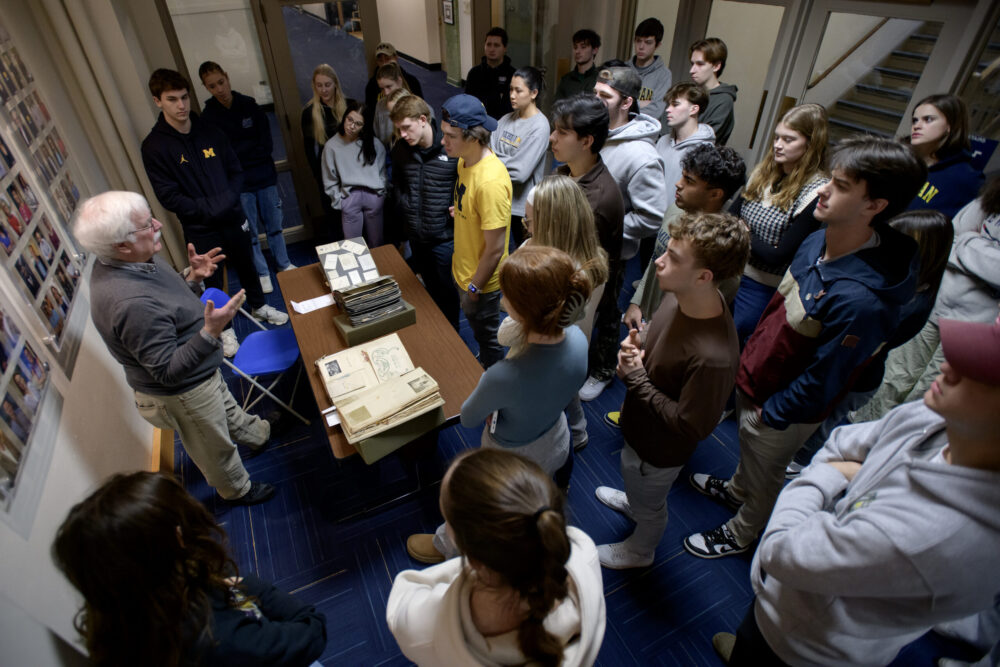
Last year, Athletics Archivist Greg Kinney (far left, behind table) gave U-M students a hands-on history lesson with archived athletics materials.
Once students completed their projects, Dooley said he would consolidate them and submit them to the Bentley for consideration in the archive.
“Without archivists, none of this would be possible,” said Dooley, who also shares Michigan athletics history through his MVictors blog. “So many of the stories I publish on the blog come from Bentley archives and especially the work of athletics archivist Greg Kinney. He digs up the primary sources that help make connections across time. The materials are incredible, but it takes talented archivists to point you toward them and help you understand them.”
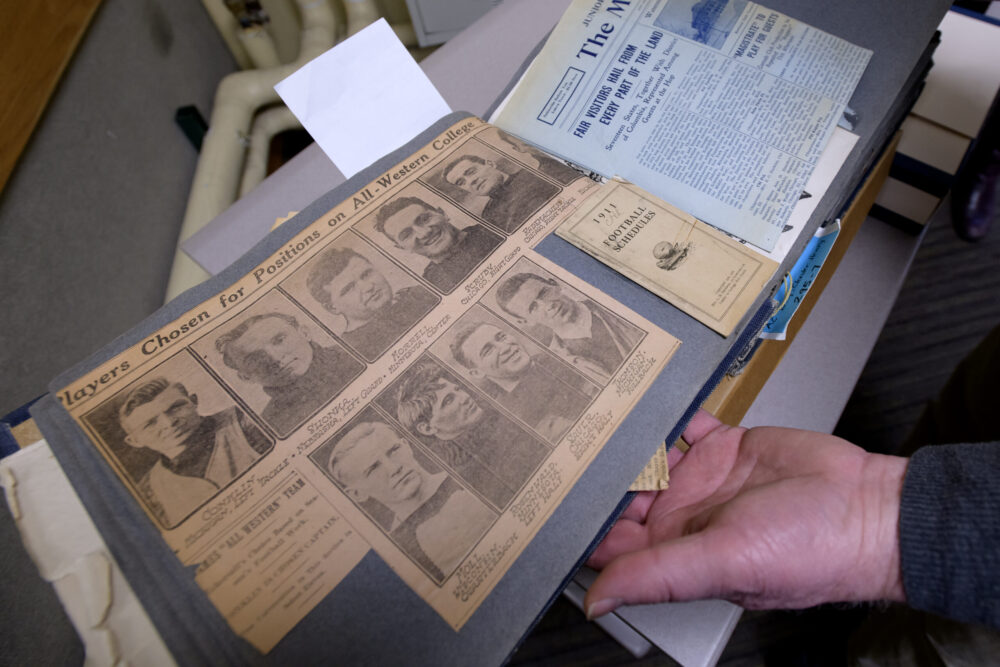
Athletics history is preserved and shared through the Bentley Historical Library.
If you are a Wolverine passionate about preserving U-M’s sports history, please consider donating to the Bentley Historical Library’s Athletics Archive Fund.
This fund ensures the long-term integrity of athletics history at U-M. Without it, an athletics archivist position could be lost. The fund also allows the Bentley to continue to archive the history of football at U-M, as well as of all men’s and women’s varsity sports – all while providing access to these one-of-a-kind materials. This includes photo galleries, digital recordings, sports programs, rosters, statistics, and much more for generations to come.

